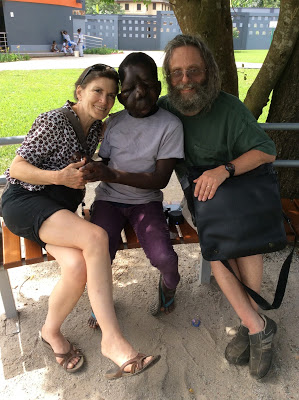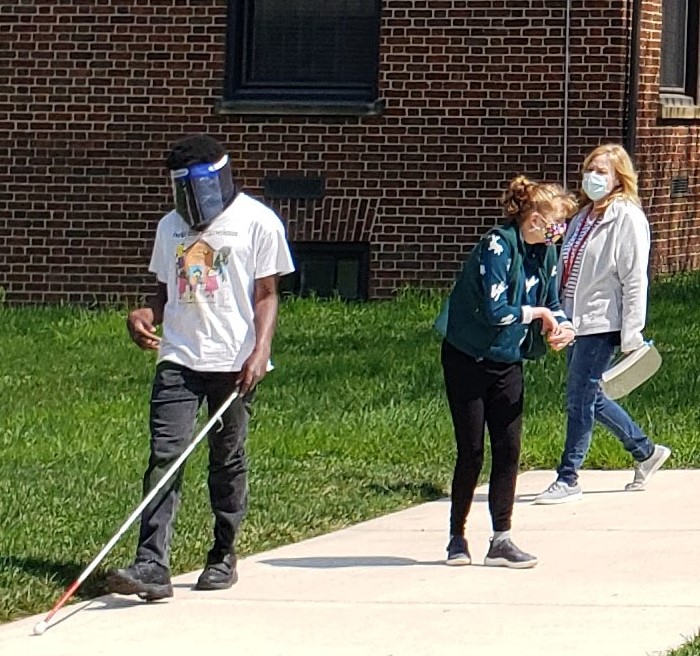Paul Wales is a typical American teenager who enjoys sports, trivia, television, and video games. He has his own YouTube Channel, where he explains how to use tech devices, so his friends have dubbed him “Mr. Technology.” He is also very interested in social justice issues, especially the Black Lives Matter movement. Paul is even writing a children’s book to educate kids about it. It is clear that Paul has a bright future and wants to make a difference in the world, just as others have done for him.
He has come a long way from his childhood as an orphan in Ghana, Africa.
Paul was born with Neurofibromatosis 1 (NF1), a genetic disorder characterized by the development of multiple benign tumors of the nerves and skin (neurofibromas) and areas of abnormal skin pigmentation. In Paul’s case, the enlarged facial tumors cover his eyes leaving him completely blind.
Despite his circumstances, Paul was a happy child and the staff at the orphanage in Ghana took very good care of him. However due to a lack of resources, he had not received any formal education during his formative years and had limited access to medical care in his home country.
Rosie Watts, a young lady from England, took a special interest in Paul after visiting the orphanage on several occasions and made it her mission to help him. She started the Helping Paul Project in 2013. Through her tireless efforts, she was able to arrange medical care, including surgical procedures for Paul in Ghana, enrolled him in a deaf blind school, and made connections with people all over the world from the NF1 community. This led to a connection with Jane Osburn and Scott Wales, a couple from the United States, who also took an interest in Paul.
After many visits to Ghana and a long and complicated process, Scott, who also has NF1, and Jane were able to adopt Paul and bring him to the US in 2017. Paul began his new life with his new parents in America. He started attending a public middle school in Silver Spring, Maryland and working with a tutor on the weekends.
Although he was progressing academically, he was missing one important element in a teen’s life – great friends. That summer Paul attended a summer program at MSB and instantly found his community. The next fall they enrolled him full time.
Paul was a natural fit at MSB and quickly stole the hearts of the staff and built enduring friendships with fellow students. He was making great strides both academically and socially when the COVID-19 pandemic hit forcing MSB to close and convert to virtual learning in 2020.
Remote learning is not ideal and is especially difficult for blind or low vision students who rely on tactile materials and hands-on instruction. For the past year, Paul was attending academic classes on-line, and was also receiving one-on-one services virtually, including Braille instruction, orientation and mobility lessons, career education and independent living skills. He also participated in many of MSB’s remote recreational activities.
Although Paul has strong technical skills and was keeping up with his lessons, he found virtual learning to be challenging. He also missed his teachers, therapy staff and, of course, his friends.
Fortunately, Paul was able to return to school at MSB this week, along with other high school students, as part of MSB’s tiered return to school plan. He was seen enjoying a familiar stroll around the campus and has settled back into his residential dorm.
“The MSB staff are doing an incredible job with both virtual and in-person instruction and they have been a tremendous source of support for Paul and our family,” according to Scott Wales. “They are a team of caring and dedicated people and we are so grateful to be a part of this community.”


